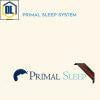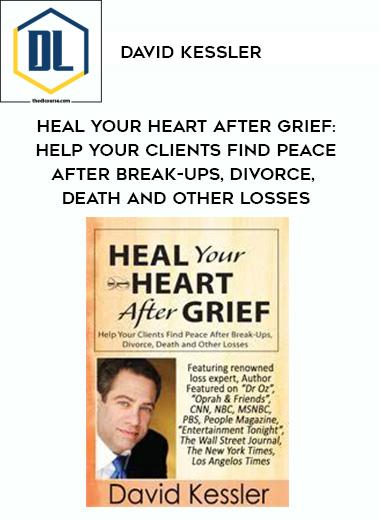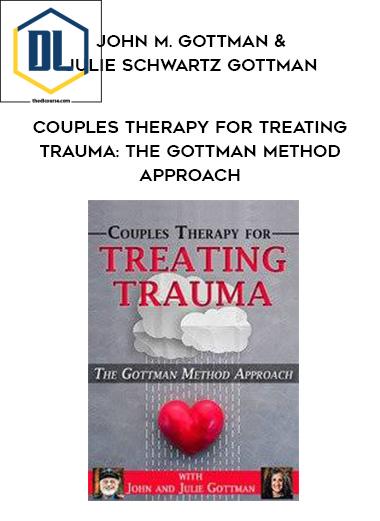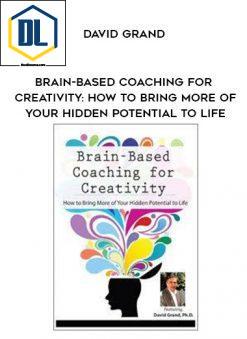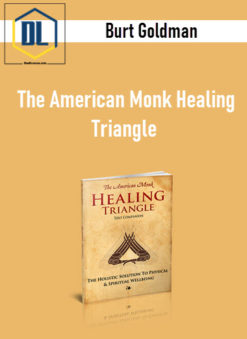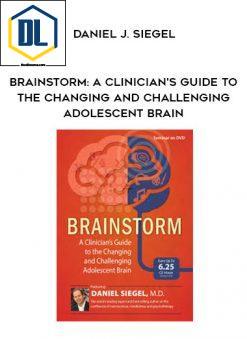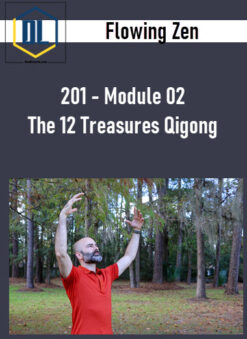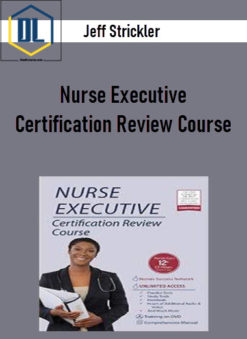Heal Your Heart After Grief: Help Your Clients Find Peace After Break-Ups, Divorce, Death and Other Losses – David Kessler
$199.00 Original price was: $199.00.$37.00Current price is: $37.00.
Product Delivery : Instant Deliver
Heal Your Heart After Grief: Help Your Clients Find Peace After Break-Ups, Divorce, Death and Other Losses – David Kessler
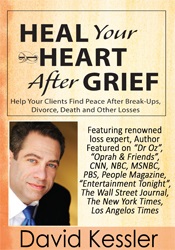
Featuring David Kessler, special guest on “Dr. Oz”, “Oprah & Friends”, CNN, NBC, MSNBC, PBS, People Magazine, “Entertainment Tonight”, The Wall Street Journal, The New York Times, Los Angeles Times
Based on David Kessler’s newest book, You Can Heal Your Heart, co-authored with the legendary Louise Hay, this recording is a blend of Louise’s life-changing thought processes as well as David’s years of working with those in grief. Their message will inform you and inspire an extraordinary new way of thinking and treating your clients.
David Kessler, best-selling author, collaborator with the groundbreaking Elisabeth Kübler-Ross, will provide you with the newest information on healing all kinds of grief. Teach your clients how to tackle the grief that occurs when a relationship leaves them brokenhearted, a marriage ends in divorce, a job is lost, dealing with cancer, a death occurs, or other challenging life circumstances.
Enhance your work as a clinician with clients who have dealt with loss. David’ message will fill you with insight, tools, strategies, and inspiring information.
- Learn healthy and supportive ways to heal all kinds of grief
- Understand old patterns to have healthy new relations despite breakups and divorce
- Help loved ones learn to live with loss after death instead of “getting over loss”
“It was wonderful working with David again. David brings wisdom and compassion to tough subjects such as breakups, divorce and the death of a loved one. If you get the chance to hear him speak on our newest work,You Can Heal Your Heart, you will find helpful information, comfort and healing in his words.” –Louise L. Hay, the New York Times best-selling author of You Can Heal Your Life
- Utilize grief coping strategies to improve client level of functioning.
- Discuss clinical strategies to reduce feelings of betrayal in clients.
- Outline the stages of grief to inform the clinician’s choice of treatment interventions.
- Recognize the clinical implications of grief on children and adolescents.
- Communicate disaster and crime coping techniques to improve client level of functioning.
- Analyze effective and ineffective models for family coping and integration as it relates to treatment outcomes.
Inner World of Grief
- The role of dreams and their archetypes
- Navigate the loss and replacement of roles in loss
- Use of Life Beliefs in healing grief
- Dealing with secrets that may be revealed after loss
Divorce
- Reinterpreting and reframing divorce
- Healing shame around divorce
- Children and divorce
Break-Ups
- Help your client understand the ways they were taught to love
- Interpret reoccurring patterns
- What lessons can bring about healing
- The lies we tell ourselves after a relationship ends
Betrayal
- How much information is good to share?
- Taking responsibility for actions
- How to move on afterward
- The cost to the soul of betrayal
After Cancer
- Heal mentally after medical recovery
- Deal with fears of reoccurrence
- Ways to find peace again with one’s own body
Other Losses
- Honoring and heal from a pets death
- The assumptions we make about our children and releasing them
- Understand the benefits and burdens about the idealize mate
- Job loss and home loss
Anticipatory Grief
- Treatment strategies
- Tools for normalizing anticipatory grief for the patient/client
Deathbed Visions and Their Impact on Grief
- Effective and ineffective models for family coping and integration
- Clinical/palliative care studies, research of near death awareness
- Using the law to normalize the dying experience
Kübler Ross Stages Revisited and Updated for 2014
- The possibility of a sixth stage?
- Interpreting the relevancy of the stages today
Children in Grief
- Tools for preparing for the loss
- Intervention for coping enhancement for funerals
- The forgotten grievers
Complicated Grief
- Simplifying the model
- Murder, multiple losses, sudden death, suicide, Alzheimers
Disasters and How We Cope
- Shootings/hurricanes/earthquakes and terrorists acts
- Techniques for approaching horrific crime and/or disaster scenes
- Helping survivors coping with suffering
Tools for the Clinician to Help Clients Cope with:
- Anniversaries
- Holidays – the seen and unseen
- Birthdays
Related products
Instant Delivery
Instant Delivery
Total sold: 1
Medical
Brainstorm: A Clinician’s Guide to the Changing and Challenging Adolescent Brain – Daniel J. Siegel
Health & Lifestyle
Nurse Executive Certification Review Course – Jeff Strickler


